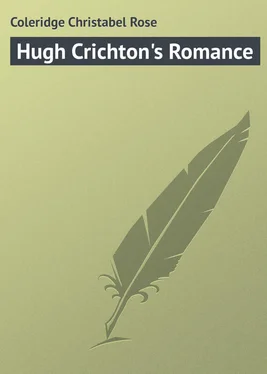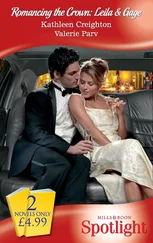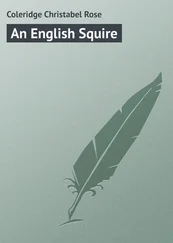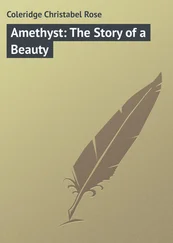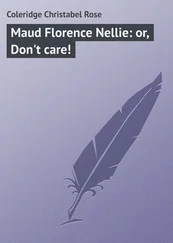Christabel Coleridge - Hugh Crichton's Romance
Здесь есть возможность читать онлайн «Christabel Coleridge - Hugh Crichton's Romance» — ознакомительный отрывок электронной книги совершенно бесплатно, а после прочтения отрывка купить полную версию. В некоторых случаях можно слушать аудио, скачать через торрент в формате fb2 и присутствует краткое содержание. Издательство: Иностранный паблик, Жанр: foreign_prose, на английском языке. Описание произведения, (предисловие) а так же отзывы посетителей доступны на портале библиотеки ЛибКат.
- Название:Hugh Crichton's Romance
- Автор:
- Издательство:Иностранный паблик
- Жанр:
- Год:неизвестен
- ISBN:нет данных
- Рейтинг книги:4 / 5. Голосов: 1
-
Избранное:Добавить в избранное
- Отзывы:
-
Ваша оценка:
- 80
- 1
- 2
- 3
- 4
- 5
Hugh Crichton's Romance: краткое содержание, описание и аннотация
Предлагаем к чтению аннотацию, описание, краткое содержание или предисловие (зависит от того, что написал сам автор книги «Hugh Crichton's Romance»). Если вы не нашли необходимую информацию о книге — напишите в комментариях, мы постараемся отыскать её.
Hugh Crichton's Romance — читать онлайн ознакомительный отрывок
Ниже представлен текст книги, разбитый по страницам. Система сохранения места последней прочитанной страницы, позволяет с удобством читать онлайн бесплатно книгу «Hugh Crichton's Romance», без необходимости каждый раз заново искать на чём Вы остановились. Поставьте закладку, и сможете в любой момент перейти на страницу, на которой закончили чтение.
Интервал:
Закладка:
Hugh was courteous and deferential, but he had no expectation that his proposal would not be received with pleasure; and was desirous, since he must speak to Signor Mattei, to have so far committed himself before he again encountered his brother, whose co-operation when he reached home he felt that he could not altogether afford to despise. Spite, however, of his not unnatural confidence in the result, he felt very hot and shy; blundered through a few unintelligible sentences; tried Italian, with a view of being polite; forgot the Italian for “daughter,” “proposal,” for every thing; and finally, with startling abruptness, hoped in plain English that Signor Mattei would consent to his engagement to his daughter. Signor Mattei stopped short in the street, struck an attitude of astonishment, and loudly exclaimed:
“Signor Hugo! Do my ears deceive me?”
“No, sir, assuredly not,” said Hugh, much discomposed at the sudden standstill. “I have long admired la signorina Violante, and to-day I have ventured to tell her so.”
“Tell her so! tell her so!” ejaculated Signor Mattei. “Tell her so, in her father’s absence! Signor, is this the conduct I could expect?”
“If I have acted in ignorance of Italian customs,” said Hugh, “your long residence in England must have informed you that in coming to you at once I have done all that is required by our own. If you will walk on, sir,” for Signor Mattei was still figuring about on the pavement in a way that worried all the sense out of Hugh’s head, “I will explain myself further.”
Signor Mattei, who had really been taken utterly by surprise by Hugh’s application, and was not undesirous to gain a little time for consideration, bowed profoundly and walked on by Hugh’s side; while the latter, who, with all his desire to make a good impression, felt irritated by his companion’s way, began stiffly:
“I should tell you, Signor Mattei, that I am in all respects my own master, and quite independent of everyone. I am not afraid that my mother will not give Mdlle. Mattei a welcome; and of my own feelings, I assure you, sir, they are most – most strong. I love her, and I hope I shall make her happy – happier than she can be in a profession to which she is so unsuited.”
Hugh was a good speaker, and generally said what he had to say on all public and private occasions with perfect fluency and distinctness; but his eloquence foiled him now, and he coloured up and looked entreatingly at Signor Mattei as he made this false step.
“Unsuited to her profession, signor! unsuited to her profession! Do you mean to insult my daughter?”
“I mean that the profession is unsuited to her,” said Hugh, not mending matters.
“Signor, she has been dedicated to my beloved art from her earliest years. Music is her vocation, as in a lesser – I am proud to say in a lesser – degree it is mine.”
Hugh was not naturally conciliatory; and to listen patiently to what he considered such nonsense, uttered with a flash of the eyes that proved its sincerity, jarred upon him so much that there was as much annoyance as entreaty in his voice as he answered:
“I venture to set myself up as a rival to your art, and I ask you for – Violante. Indeed, I don’t think she will regret the fame she gives up.”
Hugh was so sure that it was better for Violante to marry him, an English gentleman, than to sing at all the operas in Europe, he felt that he was making so good an offer, and yet he wanted her so much, that the humility born of passionate desire conquered his sense of his own merits, and he finished pleadingly:
“If I can help it she never shall.”
“Signor, my daughter is already promised, and the arrangements for her marriage will shortly be begun.”
“That is impossible,” exclaimed Hugh; “she has given her promise to me.”
“Her promise?” cried Signor Mattei; “the promise of a little, foolish, most foolish, girl! No, sir, she knows what my views are, and she is Signor Vasari’s promised wife.”
“She knows!” She – the loving, trustful child whom he had seen kiss his white flowers, who had given herself to him without one word of misgiving. Impossible, indeed.
“She shall not be sacrificed,” cried Hugh, in his turn stopping short. “She has told me that she loves me. Whatever you may have intended her to do is without her will or knowledge.”
Now, in thus asserting Violante’s individuality Hugh made a great mistake. The Italian father did not think that it made much difference if Violante had told Hugh that she loved him twenty times. It was his part to arrange a marriage for her; and her little wishes, her foolish tongue, went for nothing.
“I do not believe Mademoiselle Mattei is aware of your wishes,” said Hugh again, hotly.
Now this was an assertion which Signor Mattei could fairly face. Violante was well aware of her father’s wishes. That she was involved in any positive promise she could not know, insomuch as the promise had been made for her at the very time when she had been making a far different one for herself. Nor had she fully known her danger, since Rosa, for the sake of peace and composure, had carefully kept the subject out of sight.
“Nevertheless, she is aware of them,” said Signor Mattei; and while Hugh paused, silenced for the moment, he went on, not without dignity:
“Signor, I thank you. Your proposal honours my little girl, and honours you, since you mean to sacrifice much to win her. But I know your country and your manners, and I will not give up my daughter. Your noble ladies will not receive her well.”
“There is nothing of the sort – we have no rank at all,” interposed Hugh, “and I will answer for my mother.”
“My daughter, sir, has a great future before her; she shall not sacrifice it. She shall not marry out of her class and away from her country and give up what Fortune has laid at her feet. Your fancy, Signor, will pass as it came, and hers – pshaw – she has nothing strong in her but her voice, her voice of an angel.”
Signor Mattei was a single-minded man, though he had not dealt singly with Hugh. The good match for his daughter shrank to nothing compared to the career from which it would shut her out. That underneath lurked some consciousness of the advantage to himself is true; but never would he have dreamed of claiming any like advantages from this other suitor.
Hugh walked on by his side pale and bewildered, a horrible doubt of Violante weakening his arguments and chilling his entreaties. At last he said, desperately, “Signor Mattei, after what has passed I cannot take my answer from you. She told me nothing of a former promise. She must tell me that she has made none, and then I swear to you her life shall have none of the trials you dread. I will either go home and bring you my mother’s words of welcome – my mother herself,” he continued, rashly, “or I will seek no consent at all – none is needed. I would marry her to-morrow if you care for such a test.”
“You in England, Signor, may marry spite of a parent’s curse.”
“Curse! nonsense,” said Hugh, impatiently.
“But here a father’s word is enough. She can give you no answer but mine.”
“I will have an answer from her,” said Hugh; “and if she can tell me she is not promised to that fellow I will never give her up till – till I have persuaded you to take a different view of this.”
“But she is promised, sir, and I refuse to entertain your proposals for her.”
“She never told me so!”
“She is timid,” said Signor Mattei, with a shrug, “timid, and, like all girls, a fool. Enough; I can say no more, Signor. I have the honour to wish you good evening.” And, with a rapidity for which Hugh was unprepared, Signor Mattei darted down a side street, and left him to himself.
Читать дальшеИнтервал:
Закладка:
Похожие книги на «Hugh Crichton's Romance»
Представляем Вашему вниманию похожие книги на «Hugh Crichton's Romance» списком для выбора. Мы отобрали схожую по названию и смыслу литературу в надежде предоставить читателям больше вариантов отыскать новые, интересные, ещё непрочитанные произведения.
Обсуждение, отзывы о книге «Hugh Crichton's Romance» и просто собственные мнения читателей. Оставьте ваши комментарии, напишите, что Вы думаете о произведении, его смысле или главных героях. Укажите что конкретно понравилось, а что нет, и почему Вы так считаете.
